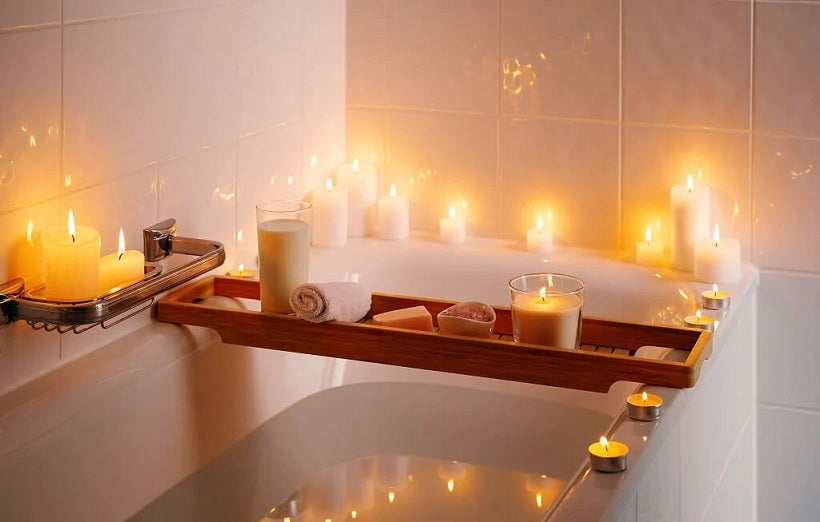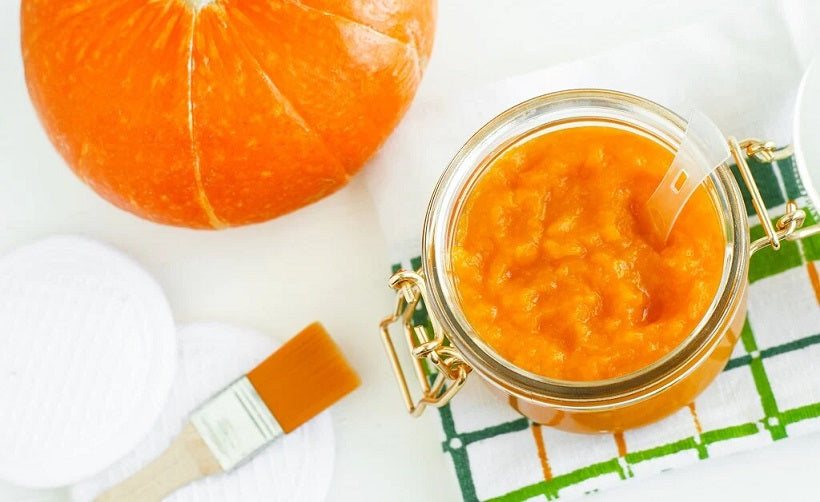Epsom salt baths are an incredible lifestyle practice to add into your weekly routine. It’s not only great for skin health, circulation, detoxification and relaxation but also mental health. It’s a gentle, non-invasive way to:
- Reduce nervous system overstimulation
- Promote relaxation
- Reduce muscle pain and aches
- Nourish nerve pain
- Enhance detoxification
- Promote sleep onset and maintenance
- Nourish cardiovascular health
- Reduce blood stagnation and enhance circulation
- Improve skin texture and softening
- Nourish reproductive health
Facts about Magnesium
Magnesium is the fourth most common mineral in the human body after calcium, potassium and sodium. Epsom salt baths are made from magnesium sulphate, a beautifully detoxifying and healing mineral. It’s been used for centuries to promote healing and longevity, particularly by drawing toxins out of the skin and increasing essential magnesium intake.

Epsom salts reduce sores, aches and pains. They also promote wound healing, immunity, relaxation, and transdermal detoxification - now that’s what we want in a bath!
Are you prone to:
- Migraines or recurring headaches
- Muscle spasms or twitches
- Period pain
- Anxiety
- Insomnia
- Aches and pains
- Tremors
- Restless legs
- Cardiac arrhythmias or heart palpitations
- Poor circulation
- Constipation
- Skin issues
Then epsom salt baths might be just for you! Magnesium is essential for neurological transmissions, cellular communication, wound healing, blood sugar/metabolic regulation, enzymatic reactions, detoxification processes and all things in between. It’s pretty important. Magnesium salt baths might not be the ‘be all and end all’ to your conditions, but they can be a lovely non-invasive way to support them and help you relax in the evenings.

You can read more about what magnesium deficiency looks like and how to choose the right magnesium supplement for your signs or symptoms.
Magnesium and Skin Health
Research suggests that epsom salt baths are ideal for enhancing skin barrier repair. Magnesium and calcium combined are key minerals to regulate how skin cells proliferate, differentiate and migrate throughout the epidermis. Magnesium and calcium play a role in sealing wounds via e-cadherin and β2-integrin functionality; these molecules specifically enhance binding skin cells together for stronger barrier protection and healing mechanisms.
Adding a nourishing oil to your bath can help the transport of magnesium through your skin's lipophilic (fat-loving) layers and membranes. Without the use of fat, magnesium will be transported via magnesium receptor sites, hair follicle cells and sweat glands, which is why best results are achieved with warm water.
Adding a weekly Epsom salt bath to your routine is a lovely way to improve your skin quality and overall health.
Magnesium salts may also reduce immune receptor activity within the skin's langerhans cells. Unfortunately, studies are still determining efficacy in support of dermatitis and psoriasis; however, there have been some studies to show improvements in skin health with epsom salt and dead sea salt bathing. The scientific literature may be inconclusive with this therapy. Nevertheless, regular epsom salt/dead sea salt baths have been used for centuries and shown to alleviate signs and symptoms such as aches, flaking and itching skin.

Detoxifying Epsom Salt Bath Recipe
Set the room with:
- Candles
- Your favourite crystals around the tub
- Relaxing music
- Chamomile or lemon balm tea
- A towel placed on the bath edge for your head to rest
- Prepare a robe, slippers and towel so you feel like a queen emerging from your luxurious bath!
What you’ll need:
- 1 cup of Epsom salts
- ¼ cup of extra virgin coconut oil
- 2 drops of lavender essential oil
- 2 drops of frankincense essential oil
- 2 drops of chamomile essential oil (or option to use 1 cup of chamomile flowers in a sachet)
*Option to alternate the extra virgin coconut oil with a cup of colloidal oatmeal in the chamomile flower sachet. This is lovely for soothing psoriasis, eczema or irritated skin too. Oat and epsom salt baths can be highly nourishing to the skin. Make sure all of your essential oils are high-quality and can be used on the skin.
Soak in the bath for 20 - 30 minutes for the ultimate relaxation and detoxification effects. Rinse your body off with lukewarm water and continue with your wind-down routine.
Tip: We also love rose, ylang-ylang, peppermint, calendula, rosemary, citrus essential oils or loose-leaf blends. Mix it up to see what you like best! If you’re not in the mood for a bath, don’t forget about epsom salt foot soaks.
Optional after bath care:
- If you use the oats instead of oils with your bath, once dry, gently massage almond or jojoba oil over your body to enhance skin moisturisation, soothing and relaxation.
- Make your epsom salts a time for ritual indulgence and self-care. Focus on loving, gentle, caring thoughts towards yourself – your body and mind need you to love them tenderly and this is the perfect time to do so.
- Avoid looking at screens or bright lights after your bath
- Take the time to really appreciate a soothing and calming night
- Try journaling, doing gentle stretches, using a body/face roller, reading, placing your legs up against the wall, or deep breathing prior to bedtime
- Follow it up with our ‘Soothing DIY facial mask’
- Download our free sleep report for extra sleep onset and maintenance tips
Embrace your bathing practice, and indulge in the senses and lifestyle practices of relaxation. It’s an ideal way to symbolically cleanse, restore, and enjoy your time in water.
*NB: Epsom salt baths are great for psoriasis, eczema, allergens, and wound healing, however, it’s still best to consult with your health care practitioner if you suffer from chronic skin conditions or are on prescription medications.
We also recommend supplementing with Magnesium | Sleep Pain (MSP) to energise your system. MSP is formulated for busy and stressed individuals who may be a little anxious, not sleeping well, plagued by aches and pains, and generally feeling tired and exhausted.
REFERENCES
Abdelaziz SH , Ibrahim O, Elmetwaly A, Maged LA. (2020). Effect of Using Warm Shower and Warm Water Footbath with and Without Adding Epsom Salt on Fatigue Level in Systemic Lupus Patients. Indian Journal of Public Health Research & Development, Vol 11:5.
Ismail AAA, Ismail NA. (2016). Magnesium: A Mineral Essential for Health Yet Generally Underestimated or Even Ignored. Journal of Nutrition & Food Sciences. 6.
Al Alawi AM, Majoni SW, Falhammar H. (2018). Magnesium and Human Health: Perspectives and Research Directions. International Journal of Endocrinology, 1–17.
Gröber U, Werner T, Vormann J, Kisters K. (2017). Myth or Reality—Transdermal Magnesium? Nutrients, Aug; 9(8): 813.









Leave a comment
This site is protected by hCaptcha and the hCaptcha Privacy Policy and Terms of Service apply.